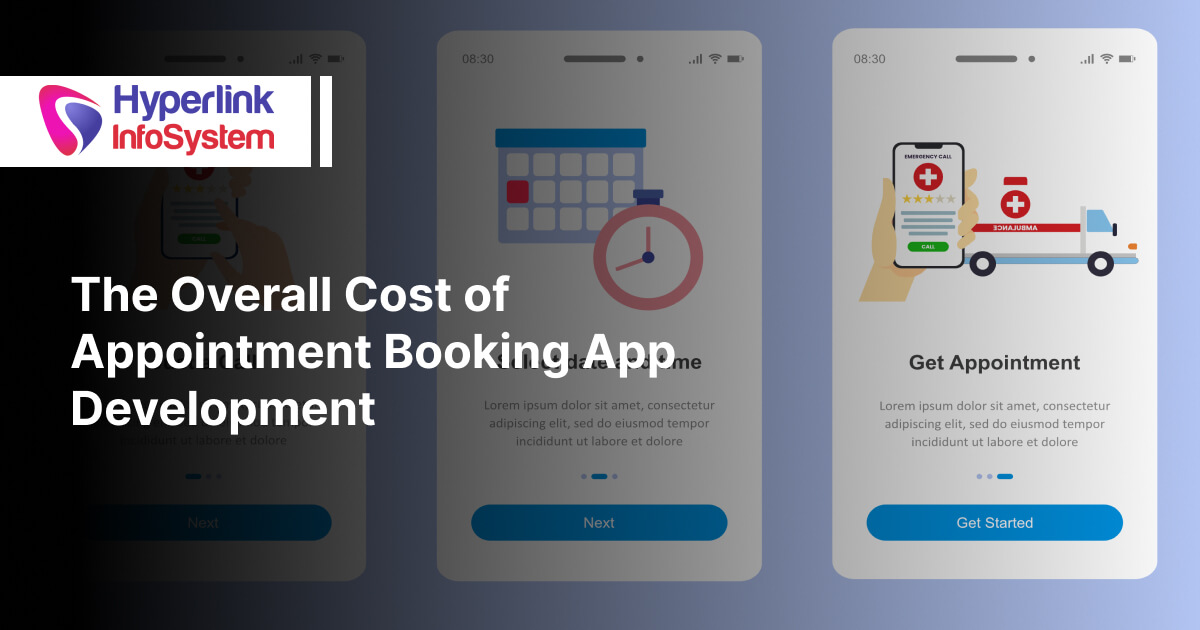Hyperlink InfoSystem can assist you with the development of native mobile app that make use of augmented reality technology, geolocation, a camera, GPS or the accelerometers that each device has. We are a top mobile app development agency in Arizona.
Native applications are specifically developed for a specific platform: iOS or Android. These types of applications are developed to take full advantage of the functions of each smartphone. They can use the hardware and software of each phone.
The native app can also benefit from more specific functionalities of each device and the operating system such as widgets or the use of push notifications from the smartphone. They can even work without an Internet connection.
Therefore, a native app is an application developed to work on a specific mobile device platform. The two most common platforms on the market are iOS and Android.
The Main Advantages of Native Applications That You Should Take Into Account Are:
Use of The Smartphone’s Hardware
When installed and integrated in the user's device, a native app can make use of the smartphone’s hardware. The app can access and use functionalities such as augmented reality, the camera, the GPS, the accelerometers.
Push Notifications
It is a tremendously effective type of direct communication with each user. App notifications allow you to jump to each user's screen to send them a message at any time.
This advantage can turn into a disadvantage if technology is not used properly. If you abuse these push notifications, the user will block them. However, it can be tremendously effective in alerting the user of useful information when properly used.
User Experience
Native app design will always be a little better than any other type of hybrid or web design. The user interface of native apps allows you to offer a design and therefore a user experience that you will fall in love with.
Rating
The fact that your native app is downloaded through an application store such as App Store and Google Play allows other users to rate it, and even write reviews.
The Cost of Mobile App Development
More people are using their smartphones because they can shop conveniently from home or simply communicate with relatives and friends. This is one of the reasons why record sums were spent on app purchases in the first quarter. Companies can significantly increase their sales through the clever use of mobile applications. However, it doesn't always have to be apps for customers. Employees also increase their productivity when they automate work processes with a mobile application. But not everyone uses the potential, also because the costs of creating the app are not known. Due to modern technologies, there are many ways to reduce the costs. There are more than 22.3 million software developers worldwide.
When companies build an app, the cost varies a lot. The question of how much it costs to create an app depends on the scope, operating system and type of development. The prices are between $10,000 and $500,000. In addition, ongoing maintenance and updates lead to additional monthly expenses. Basically, the costs depend on:
- The project complexity
- The platform (Android, iOS, Windows)
- The range of functions
- The type of app (native, hybrid, web app, game app)
- The user interface, UI / UX design
- The infrastructure
If companies want to create a company app, it must meet certain security requirements. In addition, modern technologies should be used. These aspects increase the price, because the functions have to be extensively tested.
The more functions there are, the longer the development time and the higher the costs for the programmer. If different platforms are also to be served, parts of the application must be programmed twice. Extensive functions, a good security concept and elaborate UI will increase the development of a mobile app.
When developers create a native app, many elements of the operating system can be used. The user interface can be designed in an appealing way and the app can be operated intuitively. At the same time, this type of programming is complex and the price rises.
When companies create a native app, there are many advantages in terms of performance. Above all, apps that process a lot of data at the same time benefit from the APIs provided. This gives developers direct access to the smartphone's resources. It is important that the price depends heavily on how many platforms are to be supported. Developers have to create their own application for each operating system because the environment is different. In addition, the effort for updates and customer support increases. With this model, significantly more end devices have to be supported and tested. If customers want to create their own app for iOS or only for Android, then this approach is well suited.
If companies want to create an app for many different devices that even works on a tablet or desktop PC, then hybrid or web apps are the answer the ideal way. These applications work with any browser or through a small framework that is made available in every app store.
The actual processing takes place on the provider's server. The advantages lie in the simple provision for every user. At the same time, the costs for maintenance and updates can be kept low, since only one development code is created. However, the resources of the end devices cannot be used optimally. Compute-intensive apps should not be designed as web apps. In addition, the UI does not adapt seamlessly to the underlying operating system, the user experience could suffer due to the “foreign” design.
Very simple apps are usually only used in the private sector and contain almost no functions. Mostly only information can be displayed with it. These can be measured values ??or data from the smart home. Such apps are inexpensive to program, but can hardly be found in the popular app stores.
 +1 309 791 4105
+1 309 791 4105















































 +91 8000 161161
+91 8000 161161
